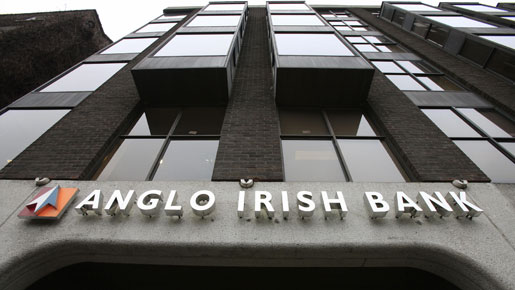
Nationalised Anglo Irish Bank will need between 6 billion and 9 billion euros ($12.1bn) in further state investment to remain afloat, Chief Executive Mike Aynsley told the Irish Times newspaper.
The state, which has already given AIB 4 billion euros in capital, would have to spend far more, up to 35 billion euros, if it were to liquidate the bank, or up to 22 billion if it chose to run it down over 10 years, Aynsley said.
“I don’t think the right thing to do is to shoot the organisation – it just makes the hole bigger for the country and the problem bigger for the country,” Aynsley said.
Anglo Irish, the lender worst hit in Ireland’s property market crash, had already made it clear it would need more help and that the alternatives to a fresh bailout would be even costlier for the taxpayer.
However, the figures quoted by Aynsley were bigger than so far reported.
Newly designated chairman Alan Dukes said earlier in March that winding down the bank would crystallise losses of over 20 billion euros and that it would be better to spread them over a longer period.
Even the 20 billion mentioned by Dukes would be as much as Dublin’s planned annual borrowings to fund what is one of Europe’s proportionally biggest budget deficits.
The Irish Times repeated earlier reports that Anglo would post the biggest loss in Irish corporate history, with a pretax loss of almost 12 billion euros for the 15 months to December, after writing off loans worth 14 billion euros.
“The numbers you have seen bandied around the press – they are probably not too far from it,” Aynsley said.
Anglo Irish, which will transfer around 30 billion euros of loans to Ireland’s “bad bank” scheme, is also grappling with a fraud investigation which Aynsley said he wanted “to be over and done with as soon as possible”.
Police on Wednesday arrested William McAteer, the bank’s former finance director, the second man to be held in the probe into events preceding the bank’s nationalisation last year.

